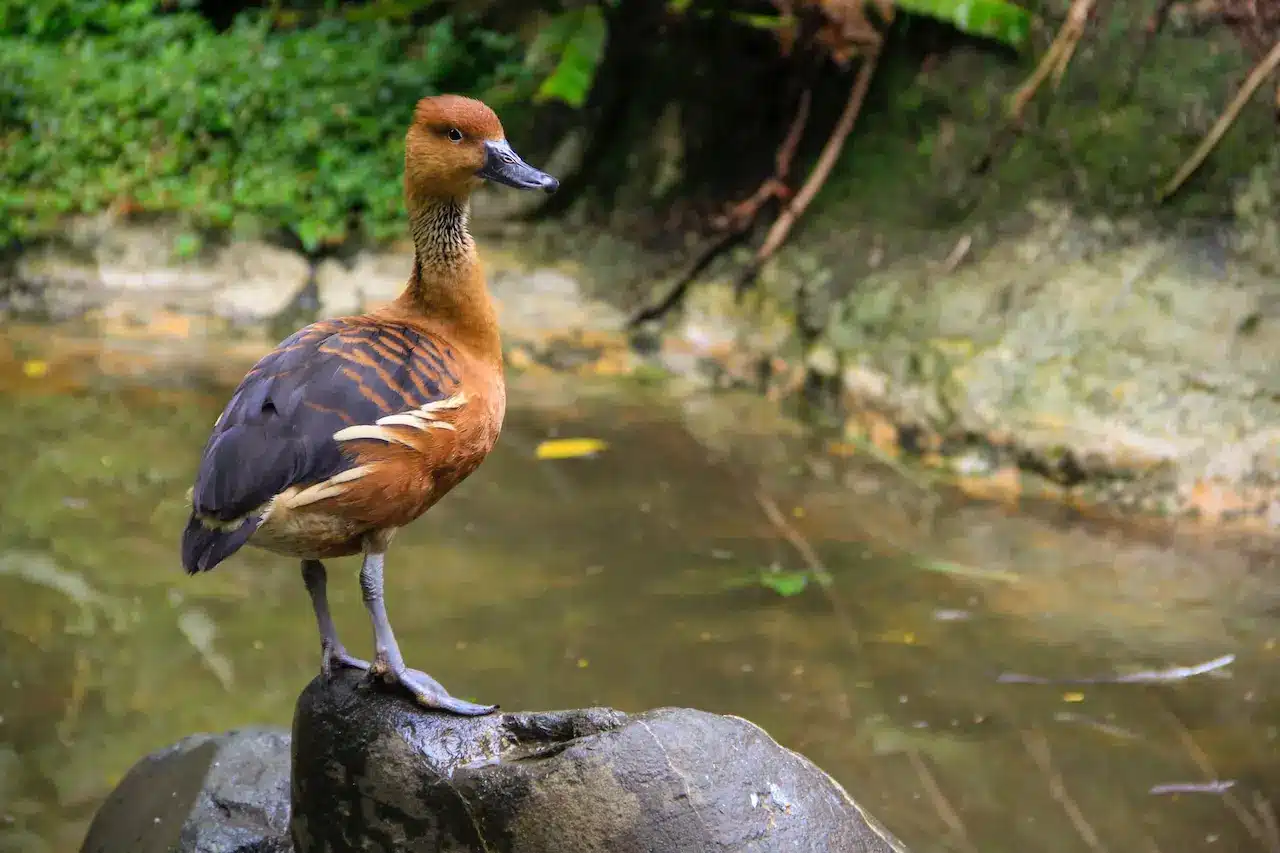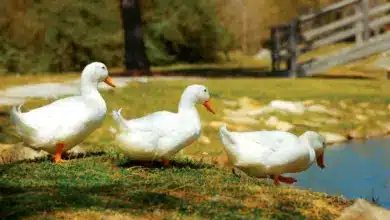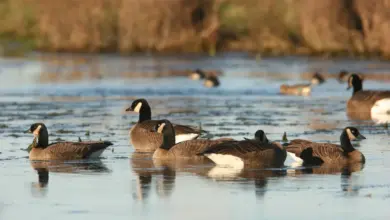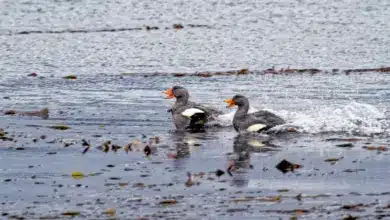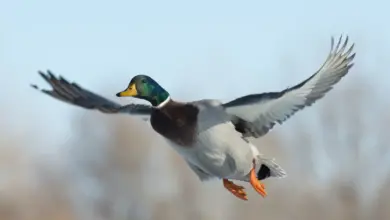*Extinct*
The New Zealand Stiff-tailed Ducks (Oxyura vantetsi) is an extinct duck species from New Zealand which is known only from subfossil remains.
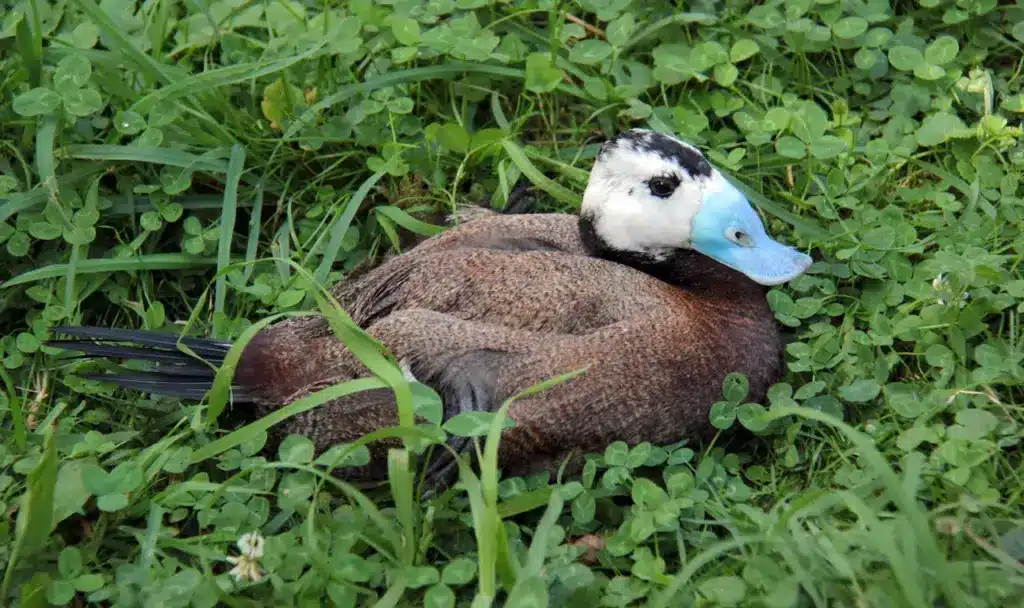
It was first described as a distinct species by Trevor H. Worthy in 2005. The New Zealand Stiff-tailed Duck was closely related to the Australian Blue-billed Duck (Oxyura australis) but its bones were about one-tenth smaller than those of its Australian relative. The holotype was found in 1967 at Lake Poukawa in Hawke’s Bay, North Island, New Zealand.
The specific name honours the late Australian ornithologist Gerard Frederick van Tets (1929–1995) who first recognized the relationship of this species with the stiff-tailed ducks in 1983.
Because the bones of the New Zealand Stiff-tailed Duck were unlabeled, it was not until 2004 that Trevor H. Worthy from the Museum of New Zealand Te Papa Tongarewa identified 19 bones out of 13,000 fossil remains of waterfowl found in the Holocene deposits at Lake Poukawa.
The fossil remains consist of left humeri, distal left humeri, right humeri, distal right humeri, and proximal right humeri. The New Zealand Stiff-tailed Duck presumably became extinct due to overhunting by the Māori in the 1500s.
More Duck Resources
Diet / Feeding:
Ducks generally feed on larvae and pupae usually found under rocks, aquatic animals, plant material, seeds, small fish, snails and crabs.
Feeding Ducks …
We all enjoy ducks and many of us offer them food to encourage them to come over and stay around – and it works! Who doesn’t like an easy meal!
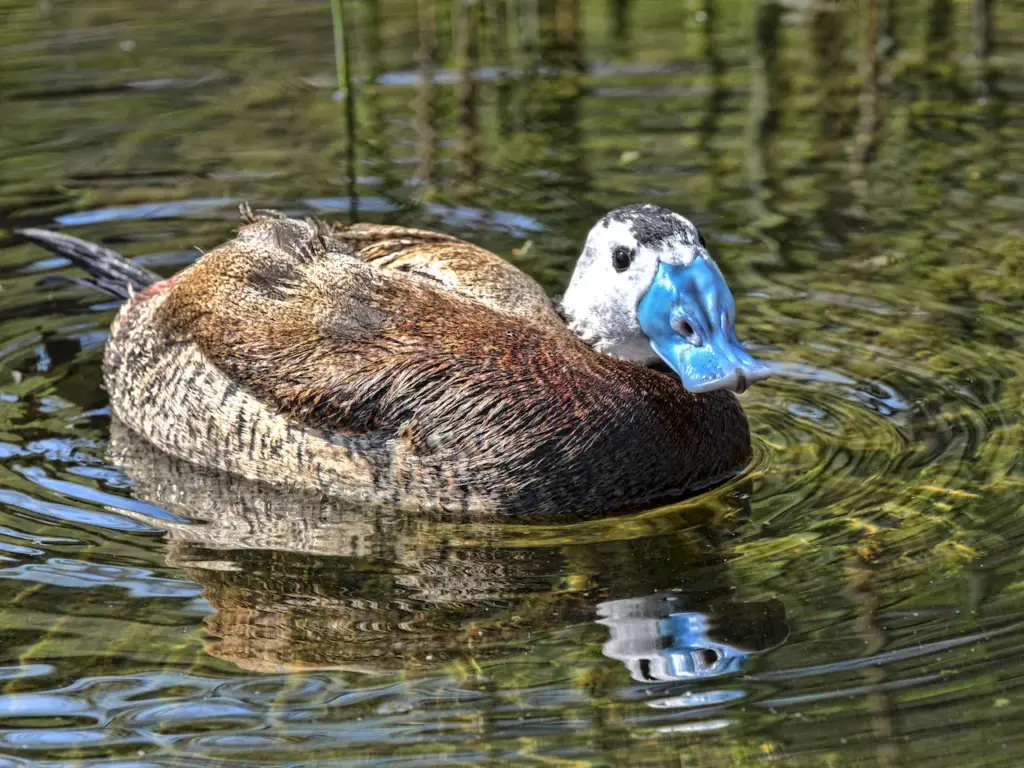
However, the foods that we traditionally feed them at local ponds are utterly unsuitable for them and are likely to cause health problems down the road. Also, there may be local laws against feeding this species of bird – so it’s best to check on that rather than facing consequences at a later stage.
- Foods that can be fed to Ducks, Geese and Swans to survive cold winters and remain healthy when food is scarce in their environment.
Please note that feeding ducks and geese makes them dependent on humans for food, which can result in starvation and possibly death when those feedings stop. If you decide to feed them, please limit the quantity to make sure that they maintain their natural ability to forage for food themselves – providing, of course, that natural food sources are available.

